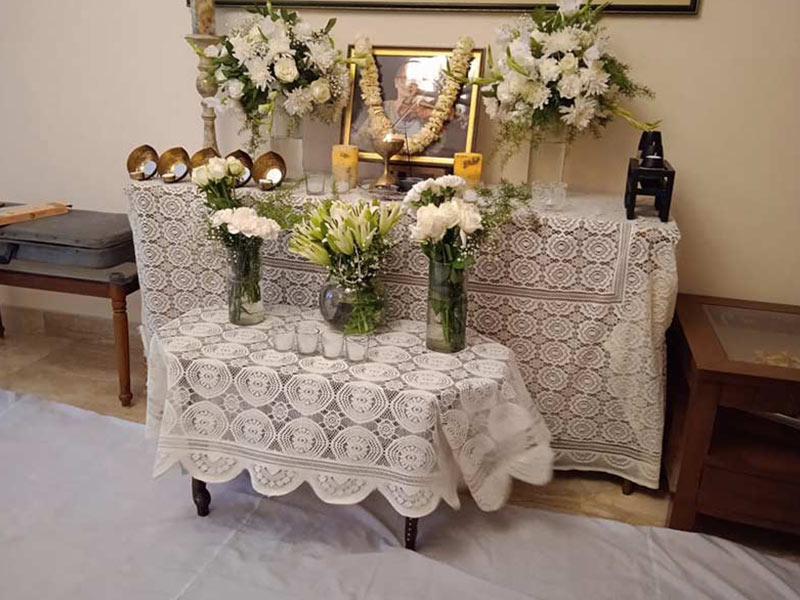Lastjourney Blog
Rituals to be performed after cremation in Hinduism

 Table of Contents
Table of Contents- After Cremation Rituals in Hinduism
- Chutha and Terhvi Ceremony after Death
- Asthi Visarjan Ceremony after Death in Hinduism
- Pind daan Ritual after Death in Hinduism
- 11th and 12th Day Death Ceremony in Hinduism
- 13th Day Ceremony after Death in Hinduism
After Cremation Rituals in Hinduism
One of the most virtue-based religions on earth is Hinduism. It is believed that just like our lives, after the death of a human, the soul begins a new journey, one that is more spiritual and eternal. Through reincarnation, the soul (atman) is born in a different body, and its form is determined by our actions (Karma) in the present life. A soul's ultimate goal is to achieve "Moksha," i.e. liberated from the cycle of birth and rebirth.
Due to these beliefs, numerous rituals and ceremonies must be performed so that the soul can achieve peace and embark on its new journey. These may vary depending on the denomination of the bereaved family.
Must Read - After Death Rituals in Hinduism
Chutha and Terhvi Ceremony after Death
On the 4th day after the loss, family and friends come together for the Shanti path, Rasam pagri rituals, Geeta pravachan, and more. The departed soul is remembered, bhajans are sung, and teachings are shared about the true nature of life.
It is believed that the soul of the lost one is conscious of any emotions on people's behalf. These rituals assist the deceased's spirit to obtain a new body for reincarnation.
Asthi Visarjan Ceremony after Death in Hinduism
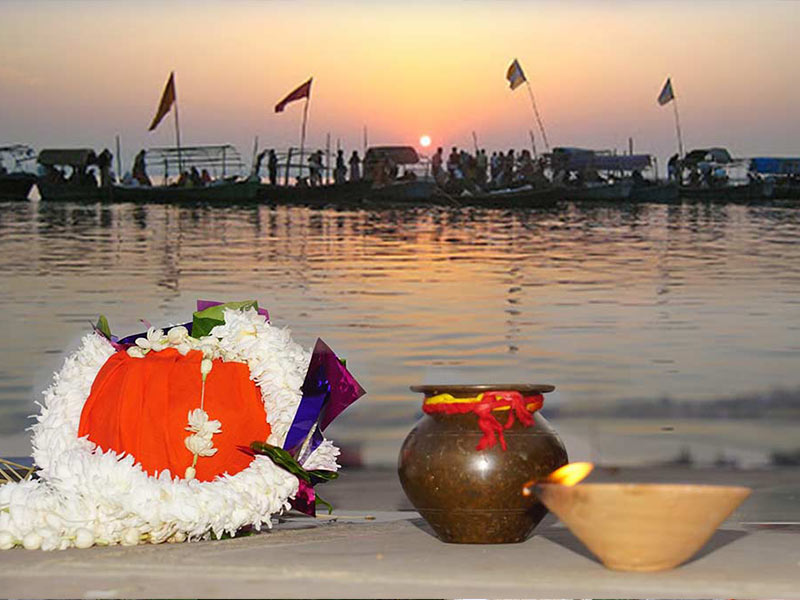
Considered one of the most auspicious rituals, immersing the ashes of a loved one in the holy rivers is believed to release the soul from earthly bondage and progress towards liberation.
After cremation, the remains of the deceased are collected and kept in an urn. They are then immersed in holy water on the day of the last rites, or the 3rd, 7th, or 9th day. This practice is known as Asthi Visarjan. Families travel from across the world to Haridwar, Varanasi, Rishikesh, and other pilgrimages to conduct the holy acts.
Pind daan Ritual after Death in Hinduism
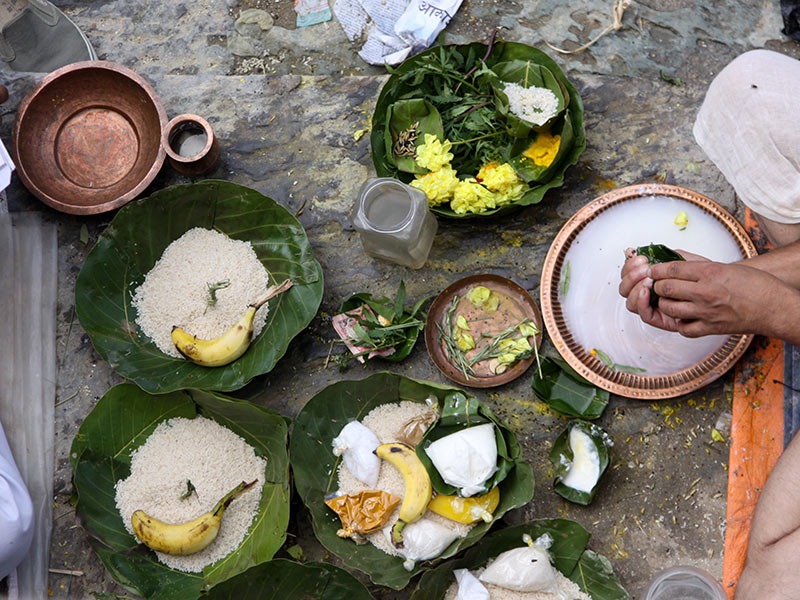
According to Hindu funeral beliefs, the soul is still wandering on the earth to find peace after death, and relatives offer pind daan. This ritual of offering circular rice balls should be performed from the 1st to the 10th day. However, nowadays, it is performed as a combined ritual as a 10th-day ceremony after death.
The rituals are performed in temples of Shiva or any other deity. After performing the acts of Pindadaan, coconut oil is poured on the asthma and submerged in flowing water.
11th and 12th Day Death Ceremony in Hinduism
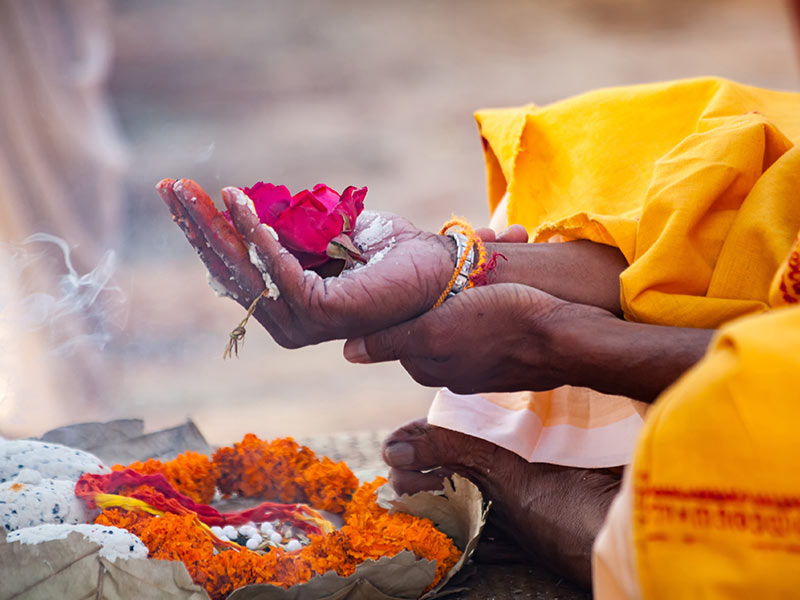
Many of us have the question of what the 11th-day ceremony is called. In Hinduism, we do the 11th-day ceremony after death called Ekadashah, which is very special on this day, families perform rituals like Pind daan (offering food to the soul), Havan (Fire Ceremony for the deceased) and charity. These rituals performed on the 11th day of the death ceremony help the soul find peace and move on. This ceremony brings emotional healing and blessings from ancestors, and by performing these rituals, families feel a sense of closeness and peace.
The 12th Day Ceremony in Hinduism is called (Sapindkaran) and is a very important ritual because by performing this ritual, we help the deceased person's soul to join their ancestors. On this day, pind daan and Havan are performed to guide them towards peace. The 12th-day ceremony is very important in Hinduism cause it helps the soul to rest, and by performing this ceremony, families receive blessings from ancestors and heal from the loss.
For the 11th-day ceremony after death, the acts of fire sacrifice in honour of the deities must be performed at home. The last rite is Panchagavya Hom, and the required mixture of cow's milk, dung, urine and ghee must be sprinkled all over the house. The chief performer of the last rites (Karta) must make a" Sankalp" to benefit the lost soul by donating food grains.
You can also visit one of our pages, where you can design a funeral invitation card and edit the details like date, name, place of ceremony, and photo of the deceased person. Visit the funeral invitation card. If you don't want to design the card, read our blog, where you can find the perfect message to send to your relatives and friends to invite them to an 11-day ceremony. Visit Funeral ceremony invitation messages.
13th Day Ceremony after Death in Hinduism
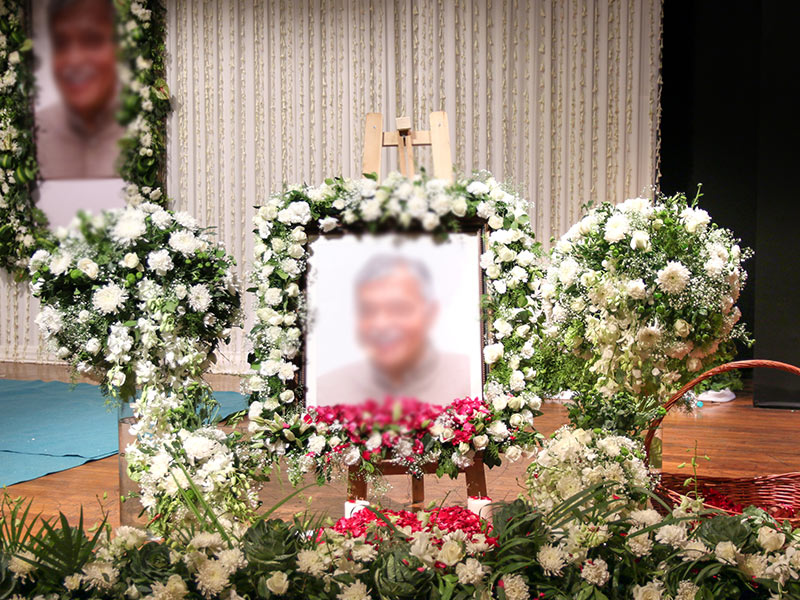
13th Day Cermonay is called Teheravin and Pagadi Rasam. Due to the acts performed on the 13th or the 16th day of the ceremony after death, the soul progresses towards its journey. By attaining momentum it cuts off ties from the family and starts to develop a relationship with the absolute soul. To mark this day, all the community members, family and friends are invited for meals, sweets, and Prashad to know everything about the 13th-day ceremony. Visit the importance of the 13th-day ceremony in Hinduism
16th Day Death Ceremony
The body of the father is required to be burned in Hindu death ceremonies, and the children are urged to abstain from eating bananas and curd. The rice balls are supposed to be placed near the body, and holy water is supposed to be poured all over it. The sacred basil leaf should also be placed on the deceased's body.
After the death of a father, many Hindu families celebrate the 16th day death ceremony. The head should be shaved. To raise the mind, soul, and body, Hindu death rituals must be completed correctly. It is believed that doing so rightly can assist in transforming the nature of an object and give it a new appearance.
Related Blogs:-
Shraddha Rituals and Ceremonies after Death
Death Ceremony Invitation Messages
Dos and DDon'tsafter Death in Hindu Family
Difference between cremation vs burial vs Funeral
Your email address will not be published. Required fields are marked *



